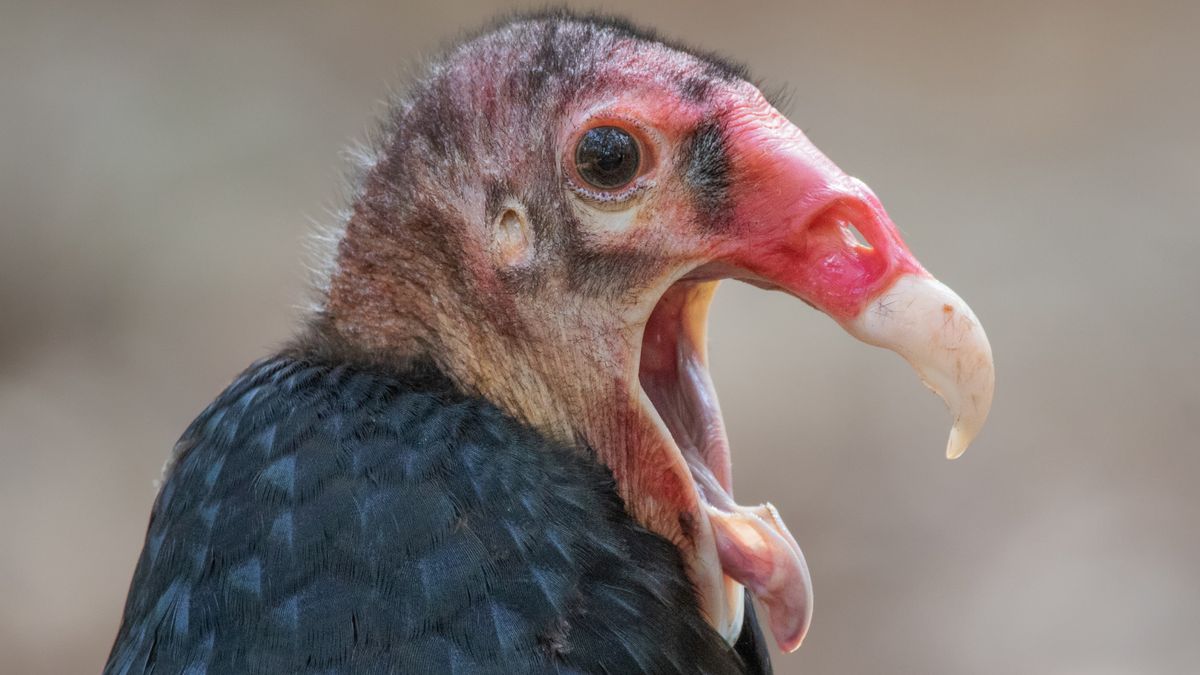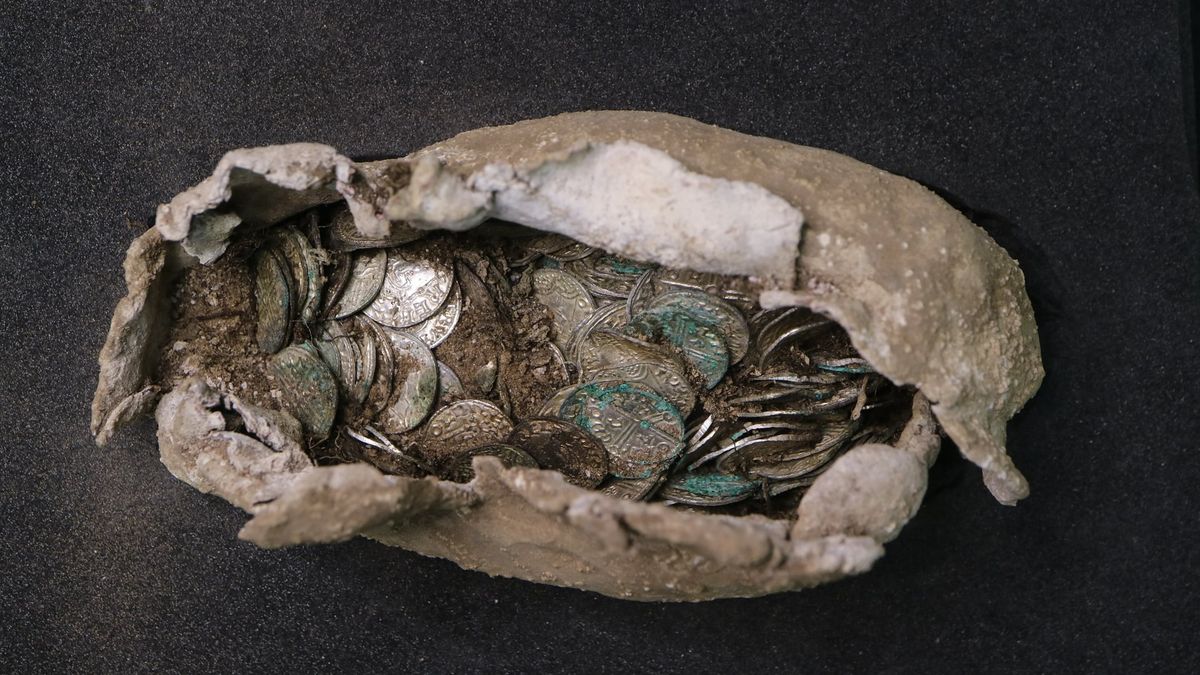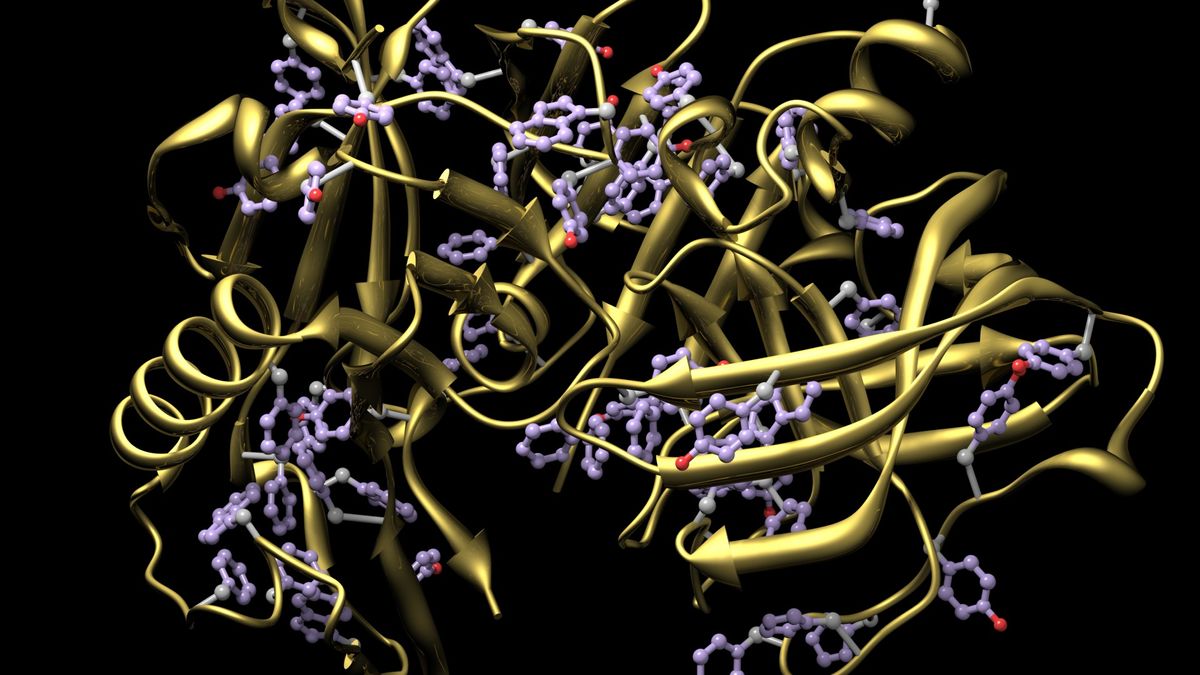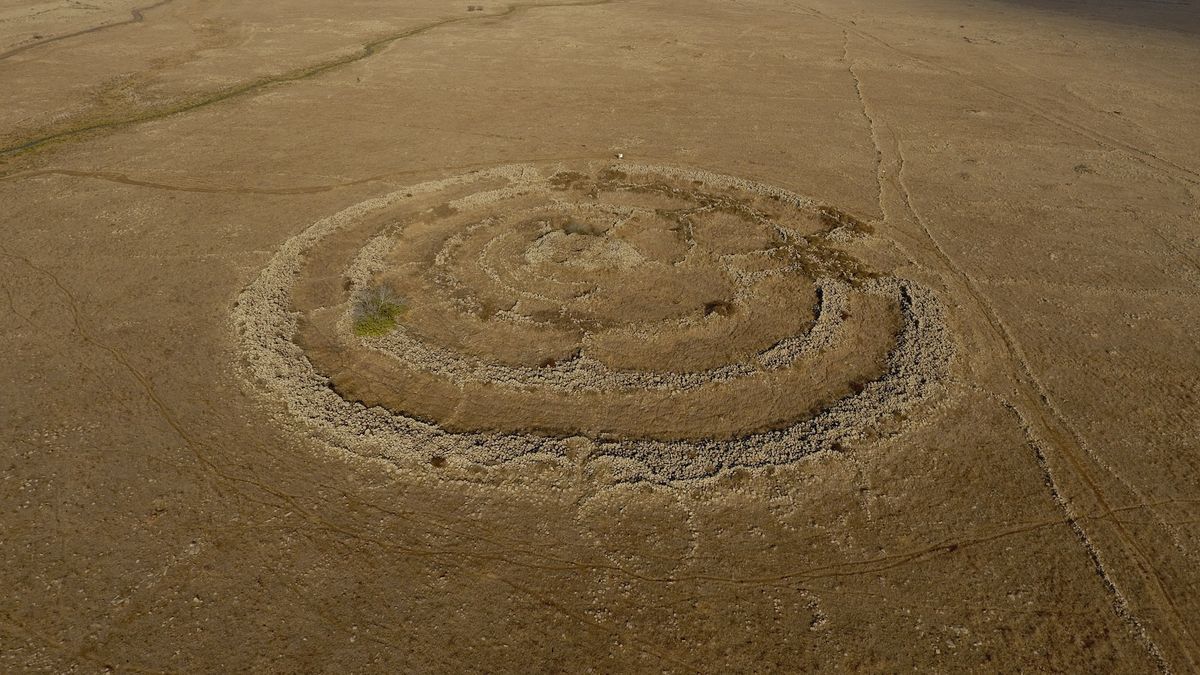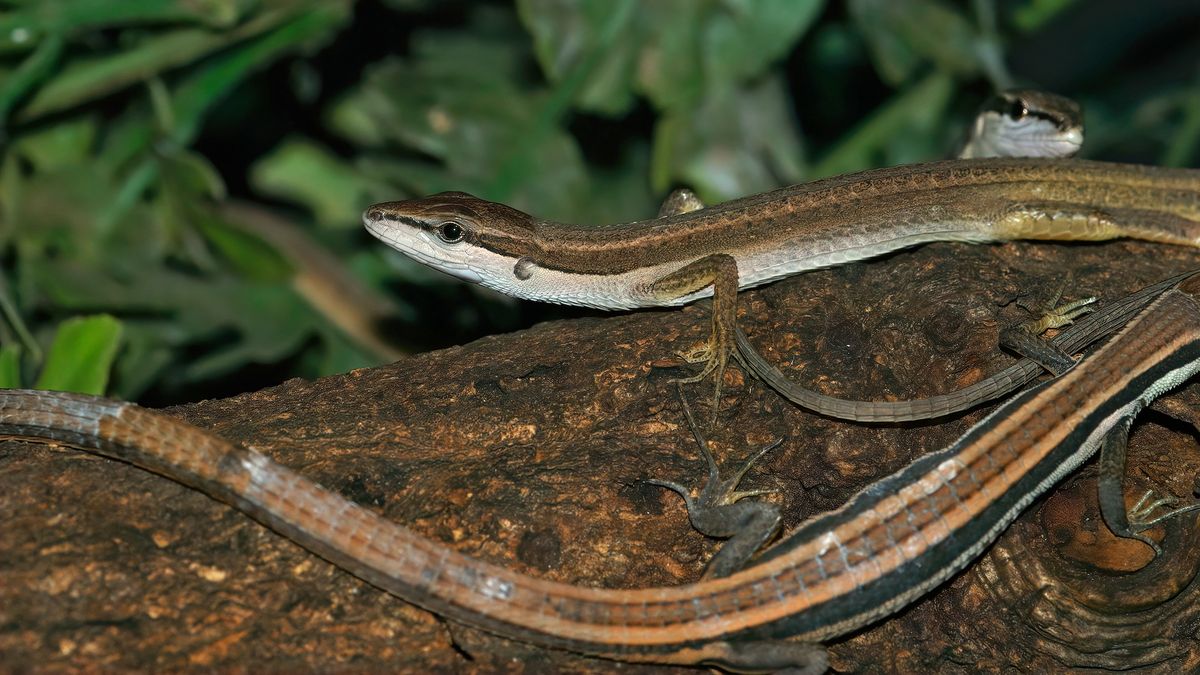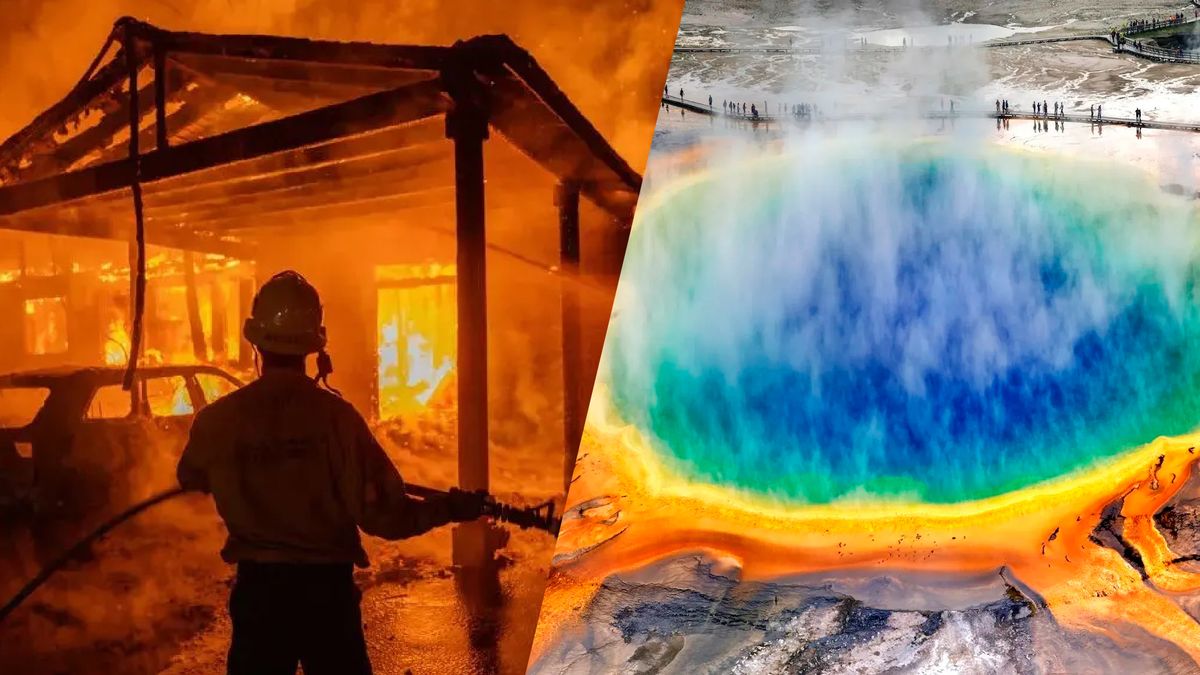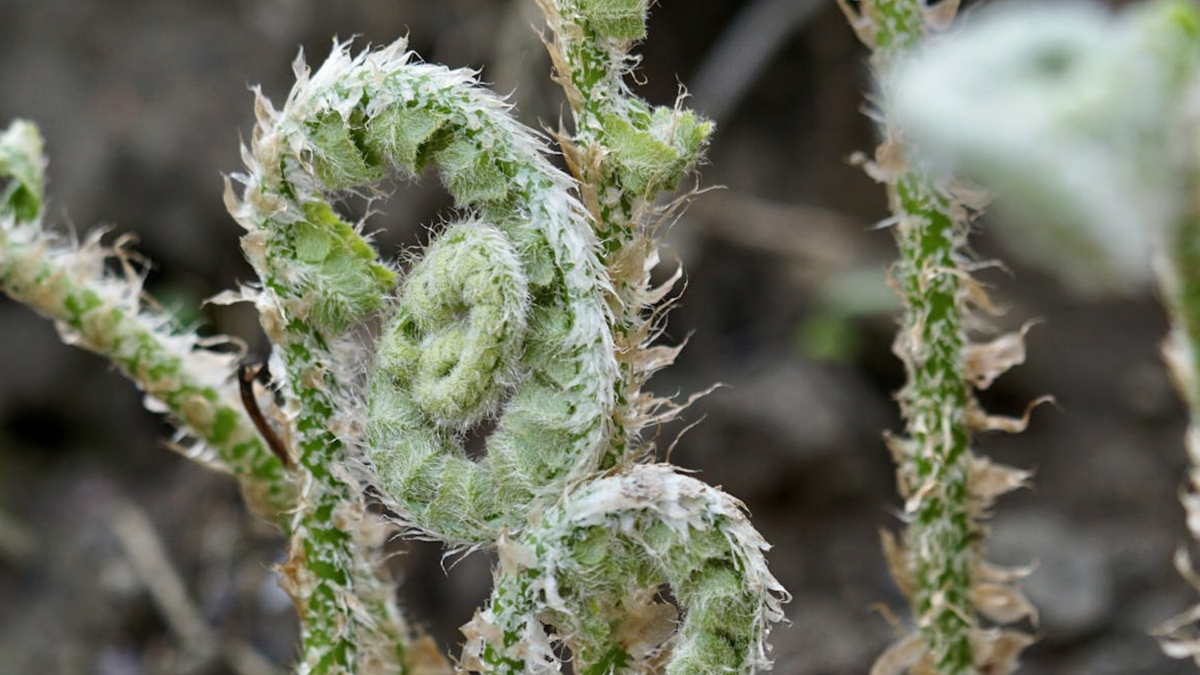Name: Turkey vulture (Cathartes aura)
Where it lives: Southern Canada to southernmost South America
What it eats: The carcasses of dead animals
Why it’s awesome: These scavenger birds have an unexpected way of keeping predators away — by projectile vomiting stomach acid and semi-digested meat at their attackers.
Turkey vultures live in a range of habitats, including subtropical forests, shrublands and deserts. They have bald heads so that when they feast on carcasses, blood and guts don’t get trapped in their feathers.
Like many other species of vulture, these birds feed on the remains of already dead animals, rather than killing prey themselves.
Despite their large size — with wingspans reaching around 5.5 feet (1.7 meters) — they’re also preyed upon by other birds, including eagles, owls and hawks. But these vultures have a nifty escape mechanism. When they’re threatened or scared, turkey vultures regurgitate a foul, acidic substance that can sting a predator’s eyes and skin. Their gastric acid is as strong as battery acid and 100 times stronger than the acid found in human stomachs, which helps the birds neutralize the toxins found in their diet of decaying meat, such as anthrax and botulism.
They can propel this vomit up to 10 feet (3 m) away to distract and deter attackers. However, vomiting also enables these birds to quickly lighten their body weight, so they can take flight and escape more easily.
These birds also use their bodily fluids in other ways. Turkey vultures defecate and urinate on their own feet to cool them down in hot weather. Because the vultures’ digestive juices kill bacteria, pooping on their legs also works as an antiseptic wash after standing on carcasses.
These scavengers find food using their sight and keen sense of smell. They fly low so they can detect the gasses produced by the early stages of decay in dead animals. According to a study published in the journal Ecosystem Services in 2022, vultures prevent tens of millions of metric tons of carbon emissions each year by eating carcasses before they decompose and release greenhouse gases.
Unlike other birds, turkey vultures lay their eggs on the ground and hide them in vegetation, caves or hollowed-out trees. Although they are social birds that live in groups, they lack a syrinx — the vocal organ of birds. So instead of birdsong, they communicate in grunts and hisses.





